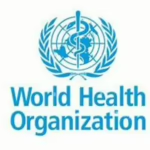The Nigeria Customs Service (NCS), on Wednesday, announced President Bola Tinubu’s approval for the implementation of a Zero Percent Duty Rate (0%) and Value Added Tax (VAT) exemption on selected basic food items.
Customs spokesman Abdullahi Maiwada said in a statement said the presidential approval was communicated through the Minister of Finance and the Coordinating Minister of the Economy, Olawale Edun.
This policy is effective from 15th July 2024 and will remain in force until 31st December 2024, Maiwada added.
He said the move would alleviate hardship faced by Nigerians due to high prices of essential food items.
“However, it is important to emphasise that while this temporary measure is intended to address current hardships, it does not undermine the long-term strategies put in place to safeguard local farmers and protect manufacturers,” the Customs spokesman noted.
He added that the implementation of the policy would focus on addressing the national supply gap.
“To participate in the zero-duty importation of basic food items, a company must be incorporated in Nigeria and have been operational for at least five years. It must have filed annual returns and financial statements and paid taxes and statutory payroll obligations for the past five years.
“Companies importing husked brown rice, grain sorghum, or millet need to own a milling plant with a capacity of at least 100 tons per day, operated for at least four years, and have enough farmland for cultivation.
“Those importing maize, wheat, or beans must be agricultural companies with sufficient farmland or feed mills/agro-processing companies with an out-grower network for cultivation,” he said.
FULL LIST
He listed basic food items eligible for the zero percent duty rate as follows:
I. Husked Brown Rice
II. Grain Sorghum
III. Millet
IV. Maize
V. Wheat
VI. Beans
“The Federal Ministry of Finance will periodically provide the NCS with a list of importers and their approved quotas to facilitate the importation of these basic food items within the framework of this policy.
“The policy requires that at least 75% of imported items be sold through recognised commodities exchanges, with all transactions and storage recorded. Companies must keep comprehensive records of all related activities, which the government can request for compliance verification.
“If a company fails to meet its obligations under the import authorisation, it will lose all waivers and must pay the applicable VAT, levies, and import duties. This penalty also applies if the company exports the imported items in their original or processed form outside Nigeria,” the Customs spokesman added.
Customs Boss Pledges Support
Meanwhile, the Comptroller-General of Customs (CGC), Adewale Adeniyi, reaffirmed the commitment of the agency to streamlining processes that will facilitate Tinubu’s food security initiative.
He made this known on Tuesday, August 13, 2024, at Nigeria Customs Service Headquarters in Abuja, during an official launch of a book, ‘Impactful Public Relations in Customs Management’.
According to the CGC, the aim is to ensure the swift importation of food items, adhering to standards that reduce costs and lower consumer prices.
The book launch coincided with the 2nd Economic Confidential Annual Lecture, where the Comptroller-General further stressed the strong commitment of the Customs Service to addressing food security challenges through targeted measures to intensify agricultural production. “
Channels












Leave a Reply